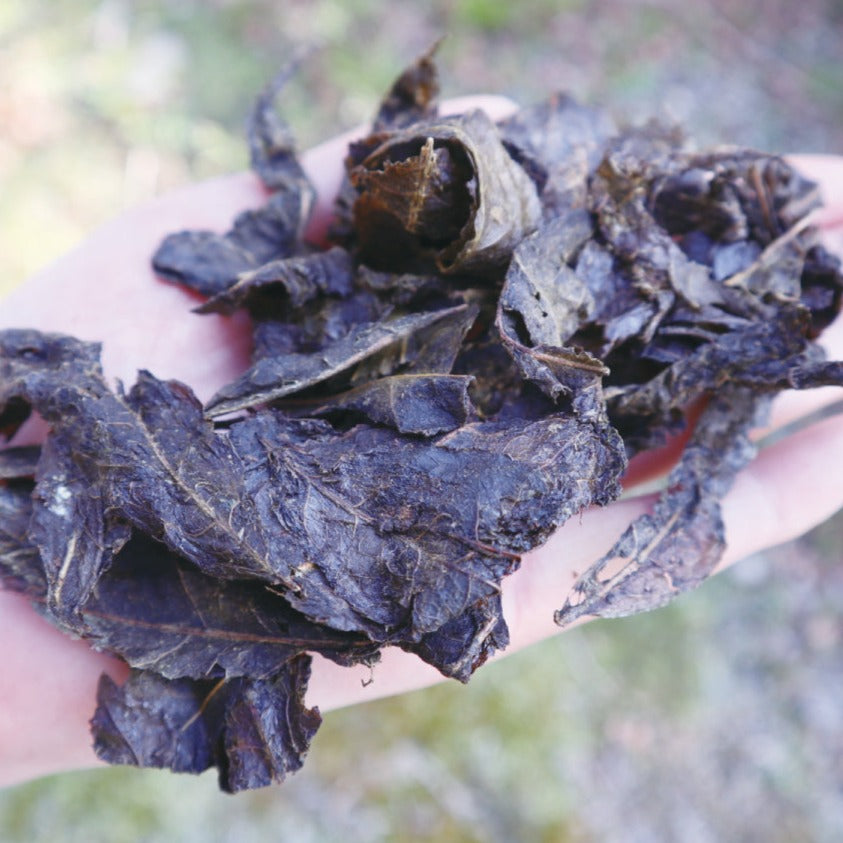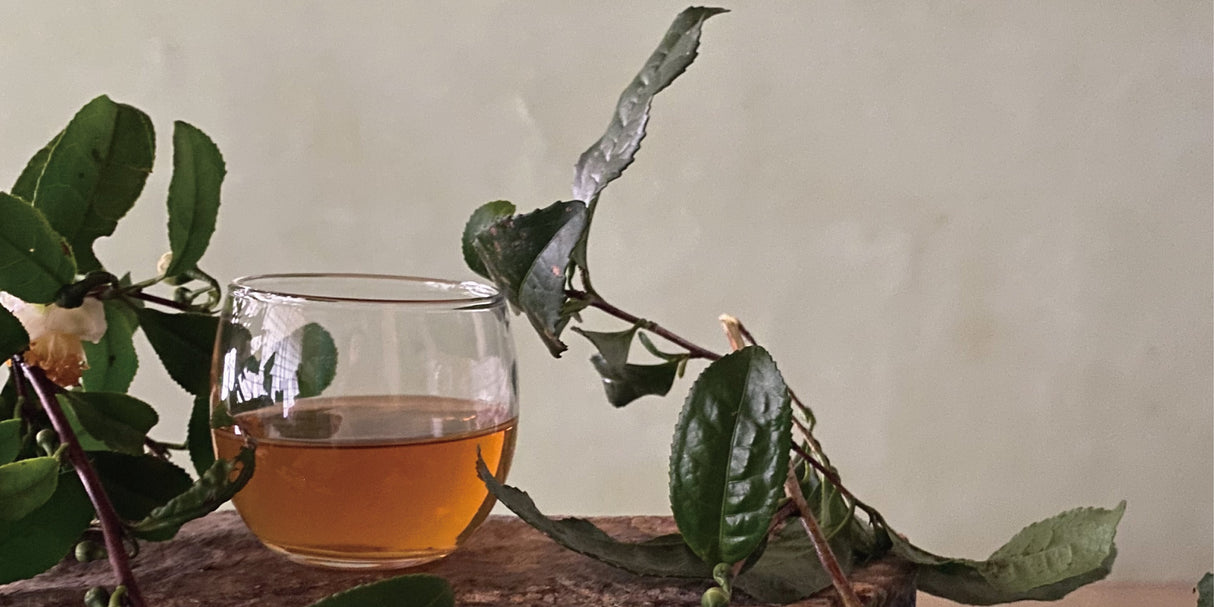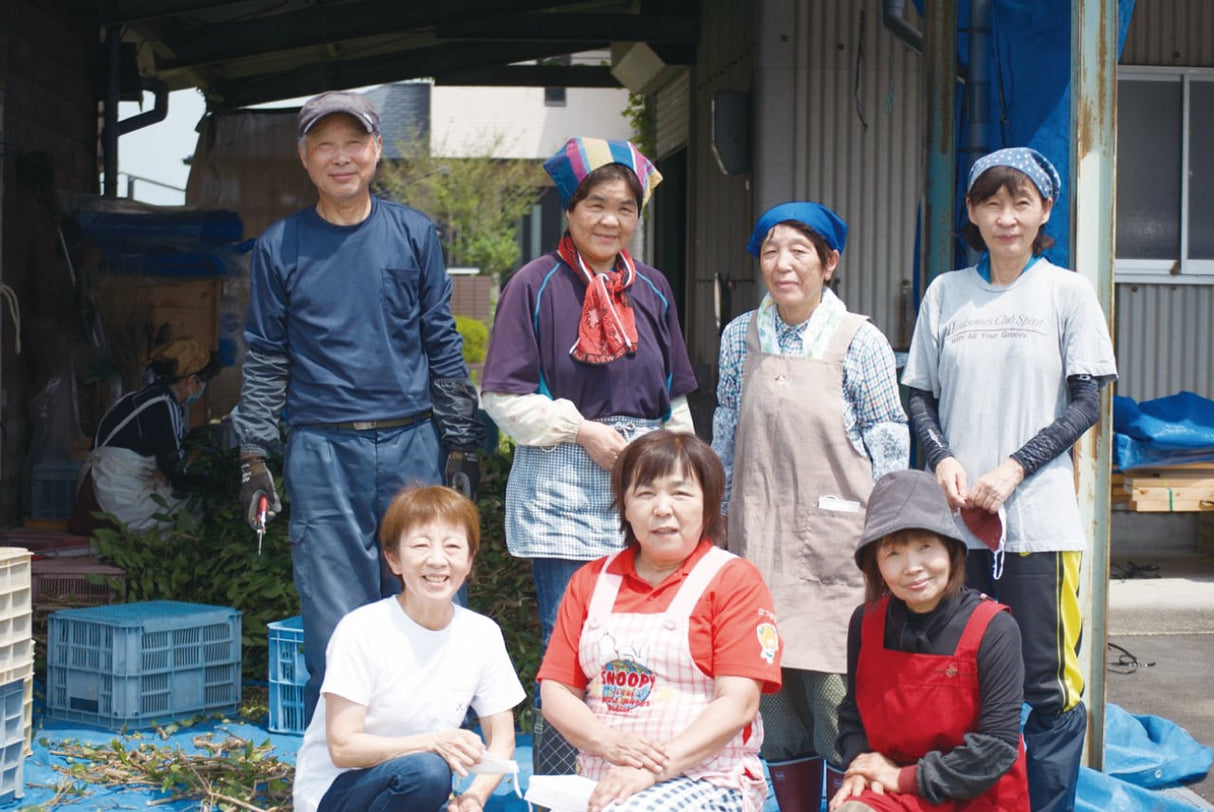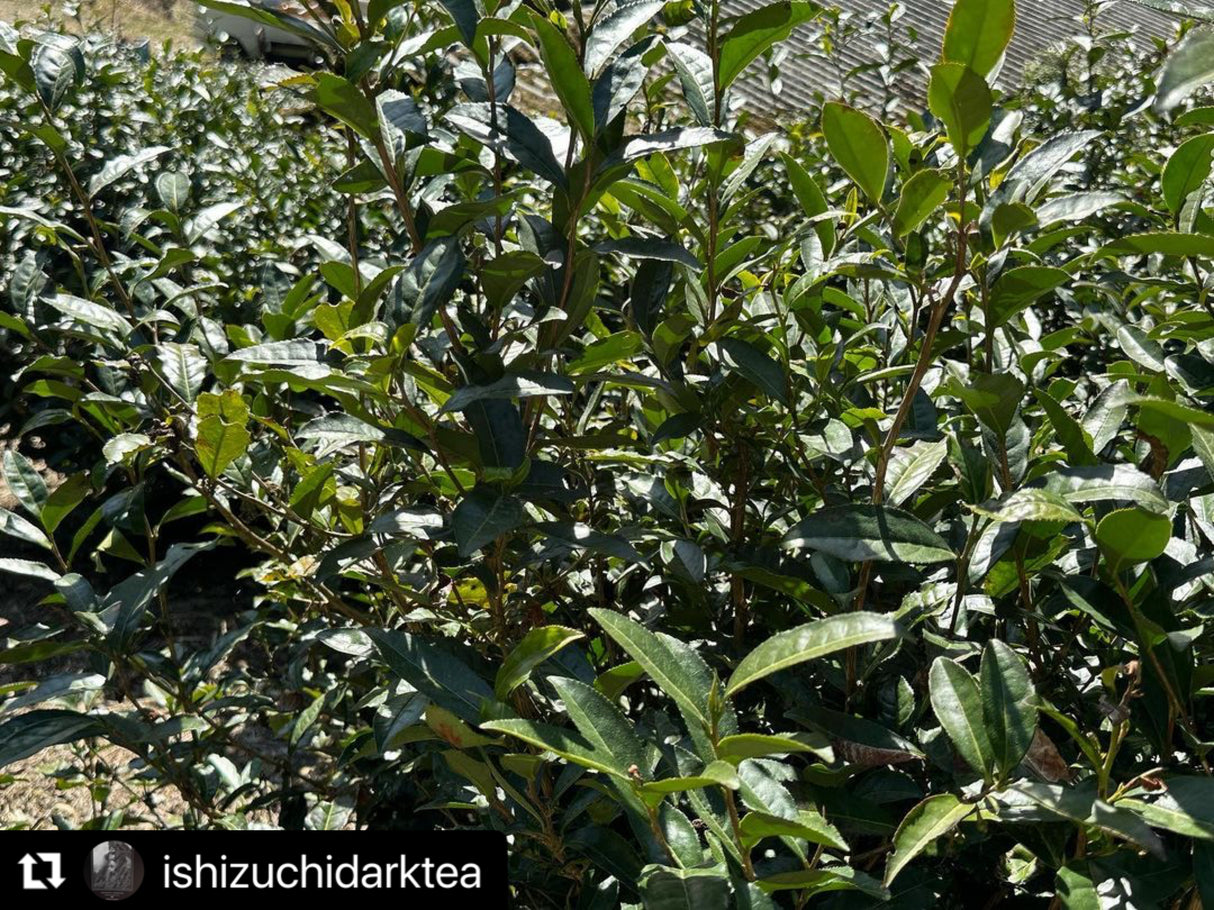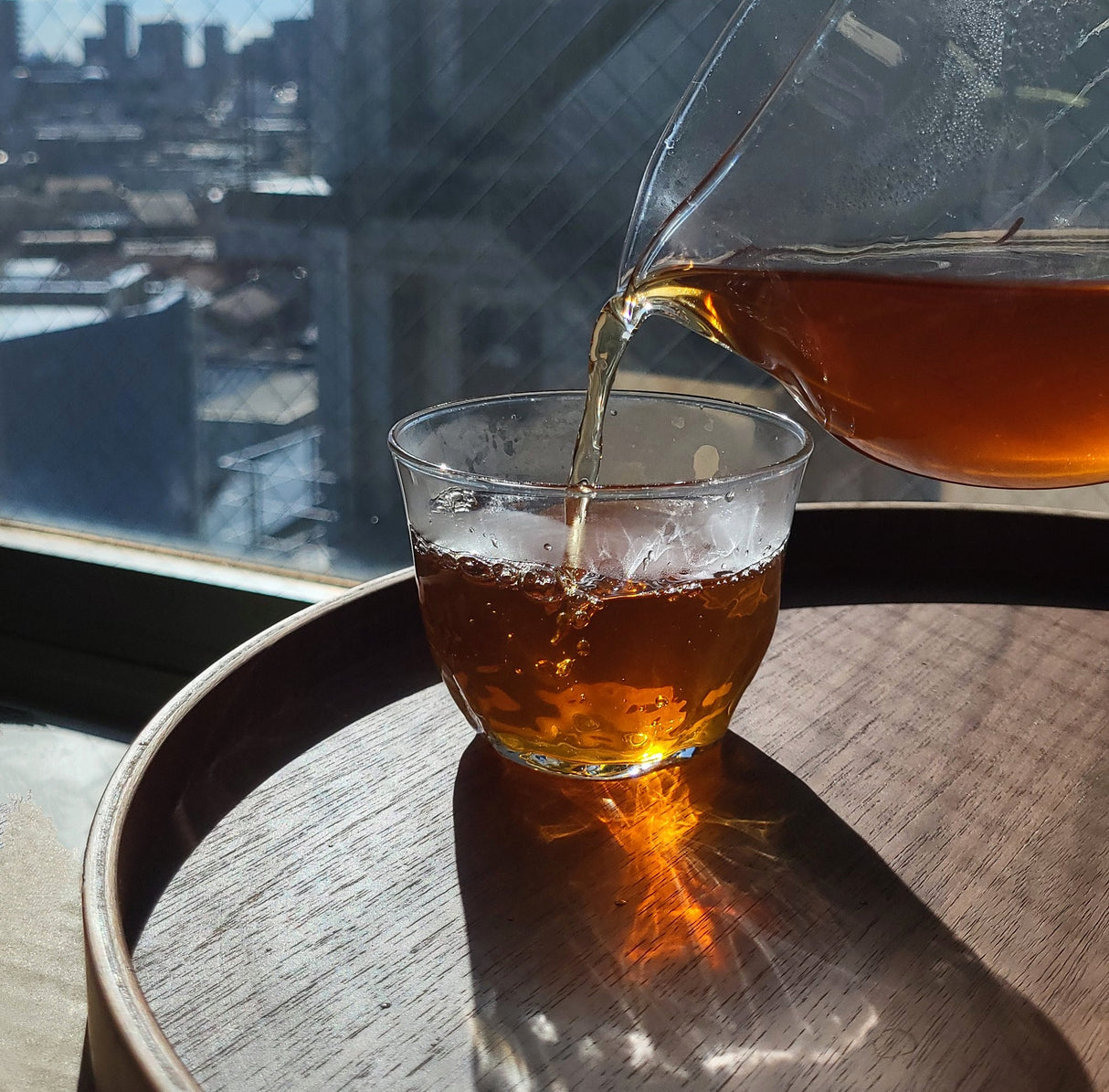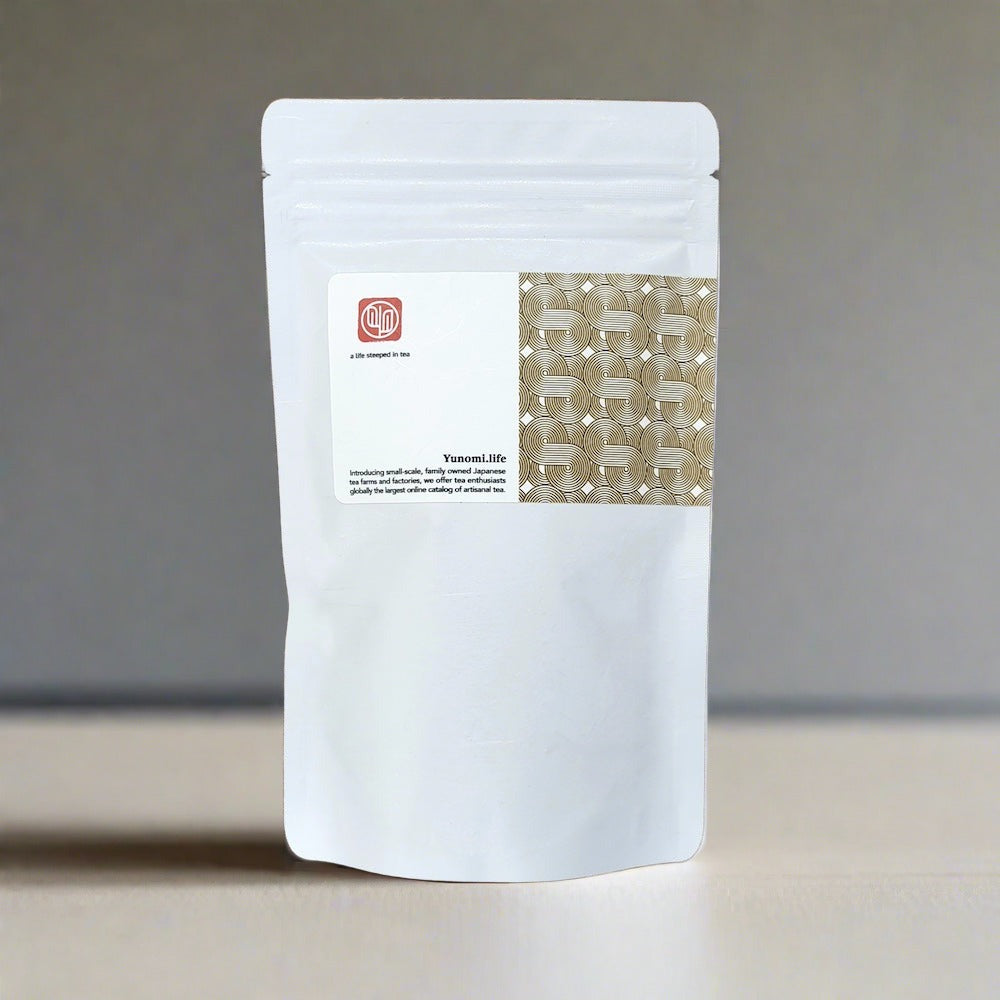#0601.E1 Ishizuchi Kurocha (Aged 3+ years) - Fermented Dark Tea from Ehime Prefecture - EH002
#0601.E1 Ishizuchi Kurocha (Aged 3+ years) - Fermented Dark Tea from Ehime Prefecture - EH002 - 100g / 3.5 oz <-- Out of stock. PREORDER NOW. In general, procurement time is 2-4 weeks (matcha may take 2-6 months). Repacking is possible if a larger size is available (1-2 weeks).
Couldn't load pickup availability
If item is out of stock, add it to your wishlist to be notified by email as soon as item can be purchased.
Shipping Methods & Delivery Guarantee
Shipping Methods & Delivery Guarantee
Shipping fees vary by country, courier, and method. Place items into your inventory and go to the CART page to see the shipping estimate calculator. For some countries, we may need to manually calculate fees after purchase.
YUNOMI.LIFE'S DELIVERY GUARANTEE: We guarantee delivery for all orders shipped by airmail with a tracking number. (Conditions apply. Exceptions when notified.) Occasionally, orders may require additional customs processing for import. We will aid you to the fullest extent of our ability. If your order does not arrive within ONE month from shipment due to no fault of your own, we will replace or refund your order at no extra cost. We reserve the right to refuse shipment if we think delivery to your address may be difficult. This guarantee does not apply if recipient neglects or refuses to pay customs fees & import taxes, neglects to retrieve an order held at a post office or distribution center, or if the order is not deliverable due to a wrong address. Yunomi.life's Delivery Guarantee does not apply to wholesale purchases.
Research has shown that ishizuchi kurocha is rich in lactobacillus plantarum (post fermentation and before sundrying, 100,000 count per gram was measured).
Steeping Notes
- The recommend steeping parameters are: 1.5g / 1-2 min / 95C (203F) / 300 ml.
- More traditionally, it is actually brewed: 1.5g / boil for 10 min in 1 liter of water.
Flavor
The flavor is fresh and bright with notes of red berries. Compared to the Ishizuchi Kurocha that has not been fermented for as long, the flavor is more rounded and the sour berry notes are not as potent. The aftertaste is refreshing and very mildly sweet.
History
Historical records do not show exactly when the tea was first grown and produced in the regions surround Mt. Ishizuchi, but the book Honchochokan (本朝食鑑) in 1697 and Saijoshi (西條誌) in 1842 mention it as a regional tea. It was more widely produced for locals during up to the Taisho period (1911-25) but slowly died out during the Showa period (1926-1989) as changes to agriculture economy swept the region.
Today, this rare tea is made by the Ishizuchi Kurocha Satsukikai, a preservation society dedicated to maintaining the production of this folk tea. The society was established because in 1996, only 1 person was left who knew how to produce the tea.
How is Ishizuchi Kurocha Produced?
- Step 1: In July each year, branches with mature leaves are harvested by hand

- Step 2: Leaves are removed and washed thoroughly in flowing water.

- Step 3: Leaves are steamed for about an hour

- Step 4: Leaves softend by steaming are packed into a barrel and left to ferment

- Step 5: Removed from fermentation, you can see the mold that has formed on the leaves.

- Step 6: Fermented leaves are rolled by hand.

- Step 7: Leaves stored in containers again for lacto fermentation

- Step 8: Leaves are removed sundried for 2 days

- Step 9: Finished dried leaf after two months of processing from harvest!

-
RegionEhime - 愛媛県
-
Vendor TypeCooperative
Payment & Security
Payment methods
Your payment information is processed securely. We do not store credit card details nor have access to your credit card information.

